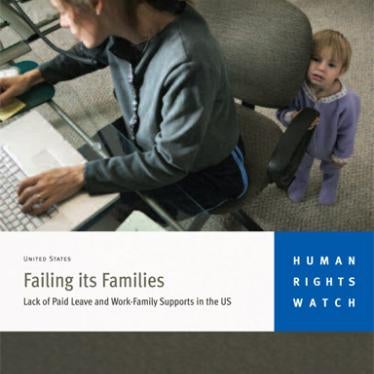Kimberley N., a senior manager of a non-profit organization, gave birth to a baby with a life-threatening illness. After years of stellar performance reviews, she received a scathing one immediately after returning from a short maternity leave. Her organization refused to let her reduce her schedule even slightly or to telecommute to make it easier to care for her infant. Her workplace turned so hostile that she felt she had to leave.
High-level professionals tend to have it pretty good when it comes to job flexibility, but as Kimberly's case shows, all is far from rosy. That's why the high-level meeting on workplace flexibility for professionals that the Labor Department is holding in New York this week is important.
High-level professionals enjoy a lot more flexibility at work than low-income workers. According to US Department of Labor data, private sector workers earning the highest 10 percent of wages are six times as likely to have paid family leave as the lowest 10 percent, and more than four times as likely to have paid sick days. A 2008 study of employers found that companies in the professional finance, insurance, and real estate industries were much more likely to offer flexible work arrangements than companies that produce goods.
But government policies do little to support businesses employing either low- or high-income workers to foster flexibility at work. This is shortsighted since there is a lot of evidence that flexibility policies can help the bottom line as well as keep employees loyal and happy.
As it stands, many workplaces have rigid policies, and workers at all levels and their employers pay a high price. Last year, I interviewed over 60 US parents about access to work-family benefits and flexible working conditions, specifically in the period after childbirth or adoption. Close to half were in professional jobs and had graduate degrees. Many encountered workplace rigidity about schedules, taking leave, pumping breast milk, or other flexibility measures.
Abigail Y., a college professor whose employer was infuriated about her pregnancy, said she was denied any maternity leave, and refused any accommodation so she could pump breast milk at regular intervals.
Several adoptive parents said their workplaces were utterly inflexible about taking leave to help their new children adapt. Theresa A., a lawyer denied any parental leave after adopting a special-needs toddler, had to go back to work six hours after getting her new son to sleep after an international flight to his new home.
Same-sex partners also said they were denied leave when new babies arrived, though this violates federal policy. The same-sex partner of a doctor who was denied any parental leave had to cope alone with a painful, infected Cesarean section wound and caring for their toddler and premature twin infants. The doctor's employer didn't view same-sex partners as "family" for purposes of taking leave under the Family and Medical Leave Act and wouldn't even let her take vacation days under rigid rules for advance notice.
Employers might fear the challenges or costs of offering flexible work conditions. But if they take a look at research, they'll find they have a lot to gain and that many flexible arrangements are easy to implement. One study found that simple measures to support breastfeeding mothers reduced turnover. Among participants in workplace lactation support programs, 94 percent returned to their jobs after maternity leave.
Improving retention saves businesses money: economists estimate that replacing a worker generally costs between 20 and 40 percent of annual salary. A 2011 study on Best Buy's results-oriented work environment program, which allows employees to change when and where they work, shows that it reduced turnover by 45 percent and mitigated work-family conflict. A variety of studies also show workplace flexibility is good for productivity, recruitment, innovation, cost savings, profitability, and reducing unplanned absences.
With the mismatch between positive results from flexible work arrangements and actual practices, there will be a lot to talk about in New York this week. Employers participating in the dialogue should take the evidence of positive results to heart, and officials should move the flexibility discussion to the next level: examining how laws and policies that promote flexibility at work can help businesses, workers, and the economy. New York state and city themselves could benefit from better flexibility policies, starting with passing existing bills on paid sick days and paid family leave.







